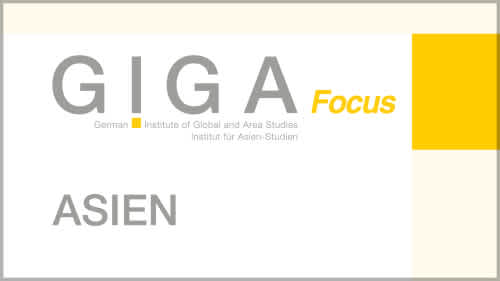- Startseite
- Publikationen
- GIGA Focus
- Oligarch vs. Nationalist: Ukraine’s 2014 Parliamentary Elections
GIGA Focus International Edition English
Oligarch vs. Nationalist: Ukraine’s 2014 Parliamentary Elections
Nummer 2 | 2015 | ISSN: 2196-3940
Ukraine’s October 2014 elections resulted in a parliament divided between three new major power blocs: the Poroshenko Bloc, the People’s Front, and the Opposition Bloc. Formed from the atomized remnants of Ukraine’s pre-Maidan parliamentary landscape, the new parties differ strongly in their bases and visions for the future of Ukraine.
Analysis
Ukraine transitioned from a bipolar party system, mainly based on the regional patronage networks of prominent oligarchs from western and eastern Ukraine, to a post-Maidan electoral landscape where the ruling Poroshenko Bloc depends on an uneasy alliance with the activist nationalists of the People’s Front to advance badly needed economic and security reforms.
The end of the old party system had the positive outcome of bringing to power a more technocratic administration that has the chance to preserve Ukrainian national unity and steer the country toward transparency and prosperity.
Current challenges are the fragility of the ruling coalition, which can only gain legitimacy by improving economic conditions and avoiding corruption, and the extreme-right tendencies of some volunteer units fighting on behalf of the government in the Donbass.
The tense February 2015 Minsk II peace accord and the threat of Russia deepening its support for the separatists is likely to further damage the Ukrainian government’s dwindling resources and its capacity for reform.
Fußnoten
Regionalinstitute
Forschungsschwerpunkte
Wie man diesen Artikel zitiert
Alexandr Burilkov (2015), Oligarch vs. Nationalist: Ukraine’s 2014 Parliamentary Elections, GIGA Focus International Edition English, 2, Hamburg: German Institute for Global and Area Studies (GIGA), http://nbn-resolving.de/urn:nbn:de:0168-ssoar-430622
Impressum
Der GIGA Focus ist eine Open-Access-Publikation. Sie kann kostenfrei im Internet gelesen und heruntergeladen werden unter www.giga-hamburg.de/de/publikationen/giga-focus und darf gemäß den Bedingungen der Creative-Commons-Lizenz Attribution-No Derivative Works 3.0 frei vervielfältigt, verbreitet und öffentlich zugänglich gemacht werden. Dies umfasst insbesondere: korrekte Angabe der Erstveröffentlichung als GIGA Focus, keine Bearbeitung oder Kürzung.
Das German Institute for Global and Area Studies (GIGA) – Leibniz-Institut für Globale und Regionale Studien in Hamburg gibt Focus-Reihen zu Afrika, Asien, Lateinamerika, Nahost und zu globalen Fragen heraus. Der GIGA Focus wird vom GIGA redaktionell gestaltet. Die vertretenen Auffassungen stellen die der Autorinnen und Autoren und nicht unbedingt die des Instituts dar. Die Verfassenden sind für den Inhalt ihrer Beiträge verantwortlich. Irrtümer und Auslassungen bleiben vorbehalten. Das GIGA und die Autorinnen und Autoren haften nicht für Richtigkeit und Vollständigkeit oder für Konsequenzen, die sich aus der Nutzung der bereitgestellten Informationen ergeben.






